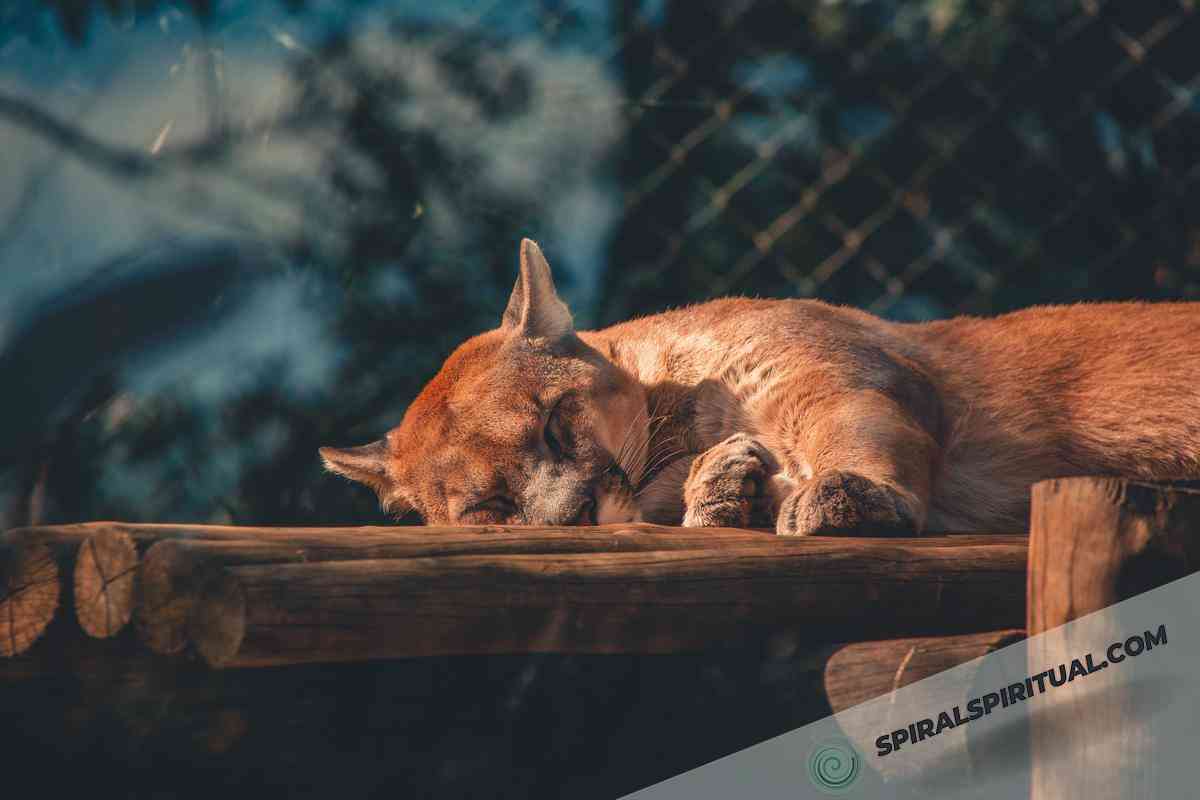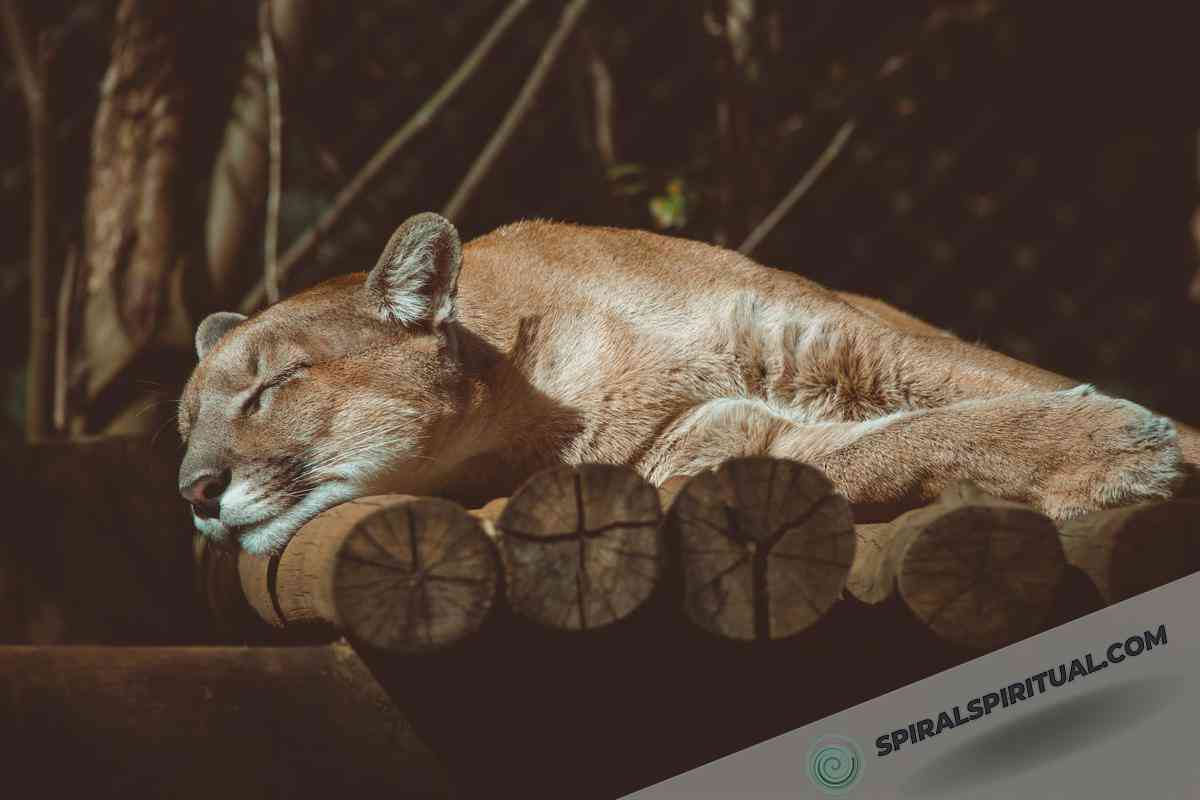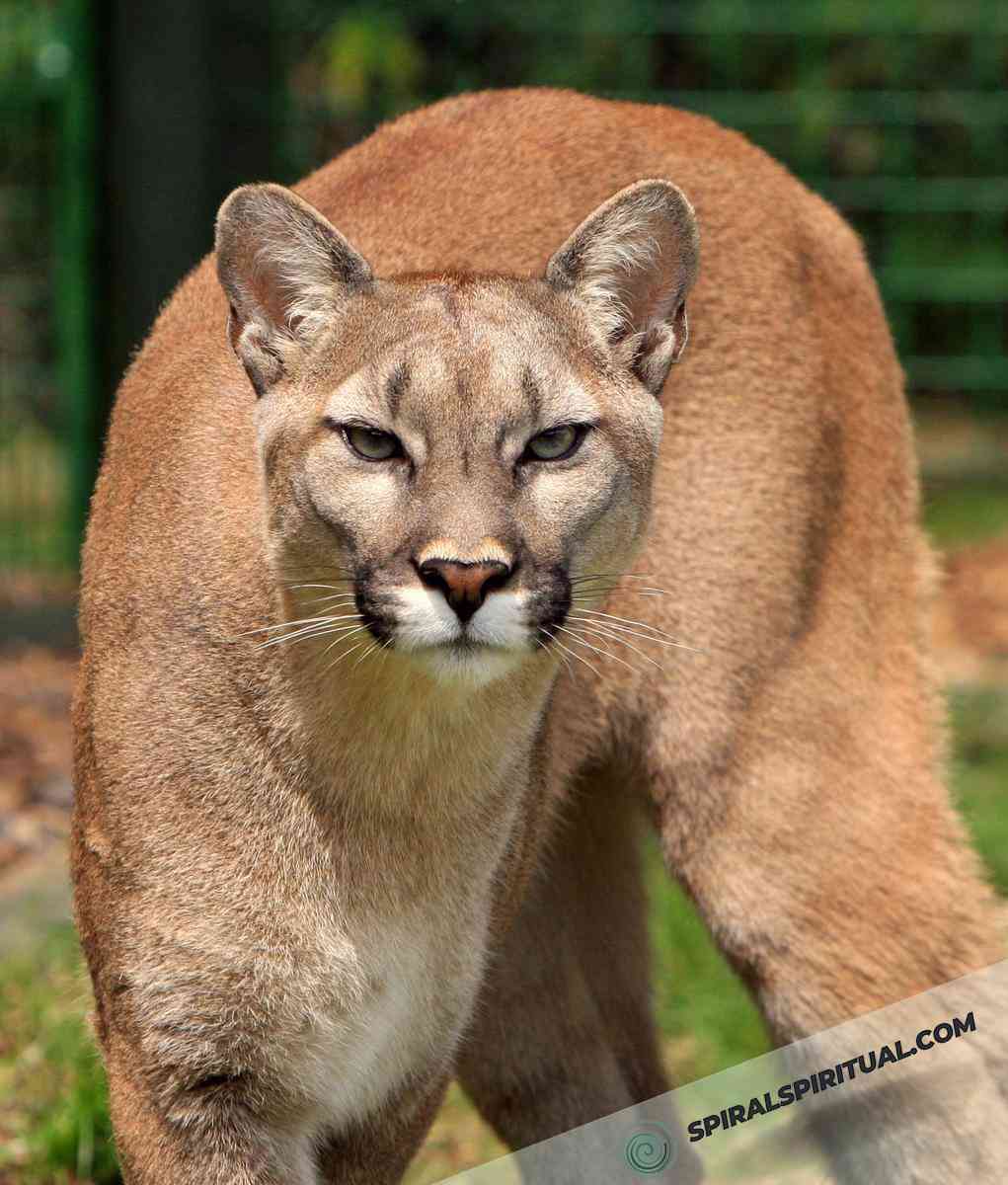What Does a Cougar Symbolize Spiritually?
A cougar symbolizes power, courage, and inner strength, representing a strong connection to the spiritual world and heightened intuition. Its presence signifies the need to trust one’s instincts and embrace personal power. According to an article by expert wildlife biologist Dr. Marcella Kelly, the spiritual significance attributed to cougars is often associated with their solitary and elusive nature, as well as their graceful and powerful presence in the wild.
5 Spiritual Meanings Behind the Cougar
During a serene evening hike with my friend, Sophia, we stumbled upon a majestic cougar. In that awe-inspiring moment, our hearts raced with both fear and curiosity. Sophia, usually timid, suddenly displayed an unexpected burst of courage as she locked eyes with the cougar. It felt as if the cougar was transmitting a message of strength and independence directly to her soul. From that day forward, Sophia embodied the cougar’s spiritual symbolism, embracing her innate power and fearlessly pursuing her dreams.
The cougar holds various spiritual meanings across different beliefs and interpretations. Generally, it symbolizes:
- Power and Leadership: The cougar represents strength and authority, reflecting a person’s ability to take charge and lead with confidence in spiritual endeavors. Its presence signifies the importance of harnessing inner power and using it responsibly to guide others.
- Courage and Fearlessness: Often associated with courage, the cougar encourages individuals to confront their fears and move forward with determination. It inspires one to overcome obstacles and embrace challenges, fostering a spirit of fearlessness and resilience on their spiritual journey.
- Intuition and Awareness: Cougars possess keen senses and heightened intuition, enabling them to navigate through the wild with grace and precision. Similarly, the spiritual meaning of a cougar emphasizes the significance of listening to one’s inner voice, trusting instincts, and developing a heightened awareness to decipher spiritual messages.
- Independence and Self-Reliance: As solitary creatures, cougars symbolize independence and self-reliance in the spiritual realm. They encourage individuals to rely on their strengths and abilities, teaching the importance of finding one’s own path and embracing solitude as a means for self-discovery and spiritual growth.
- Balance and Adaptability: Cougars adapt to various terrains and environments, demonstrating the ability to find equilibrium amidst change. In a spiritual context, the cougar’s presence speaks to the significance of finding balance between different aspects of life, maintaining harmony within oneself, and adapting to evolving circumstances on the spiritual path.
The Symbolism of Cougar in Different Cultures
The symbolism of the cougar is diverse and varies across different cultures. In Native American cultures, the cougar holds a revered status, symbolizing attributes of courage, leadership, and strength. Native Americans often see the cougar as a spiritual guide or totem representing assertiveness and protection.
Moving to South America, particularly in the Inca civilization, the cougar, known as the Puma, assumes great significance as a powerful and sacred animal. The Inca people associated the Puma with fertility, wisdom, and agility. Those born under the sign of the Puma were believed to possess exceptional qualities, including leadership and intuition.
In Mesoamerica, specifically among the Aztecs, the cougar was linked to Tezcatlipoca, a deity embodying strength, valor, and nobility. Tezcatlipoca, frequently portrayed with both a jaguar and a puma to symbolize day and night, represented the balance of opposing forces. The cougar represented the fierce aspect of this god, thereby signifying the Aztec belief in its spiritual significance.
These cultural interpretations only scratch the surface, as cougar symbolism can vary even within tribes and regions. Nevertheless, they provide valuable insights into the spiritual significance attributed to cougars among Native American, South American, and Aztec cultures.
Cougar Color

Cougars, also known as mountain lions, are majestic and powerful creatures that hold significant symbolism and spiritual meaning in various cultures and belief systems around the world. The color of a cougar is often associated with particular qualities and attributes.
| Color | Symbolism |
|---|---|
| Golden | The golden color of a cougar is often associated with the sun, representing strength, power, and leadership. It symbolizes intelligence, wisdom, and the ability to perceive hidden truths. |
| Brown | Brown is linked to the Earth, grounding, stability, and reliability. It represents a connection to nature, endurance, and the ability to navigate through challenges and obstacles with grace and resilience. |
| Tan/Light Brown | Cougars with a tan or light brown color are often associated with adaptability, camouflage, and blending in with their surroundings. This hue symbolizes stealth, agility, and flexibility. |
| Gray | Gray cougars are often associated with wisdom, maturity, and experience. This color represents balance, neutrality, and a deep understanding of the complexities of life. |
| Black | Black cougars are sometimes considered rare, mysterious, and elusive, associating them with secrets, hidden knowledge, and magic. This color symbolizes protection, strength, and the ability to navigate the darkness with confidence. |
| White | White cougars are often linked to spiritual purity, transcendence, and divine energy. This color represents spiritual wisdom, guidance, and the ability to connect with higher realms. |
Is the Cougar a Good Omen?
Some people choose to keep cougars as pets, believing that they bring good omens. They are attracted to the cougar’s symbolism of strength, power, and leadership. These individuals view the presence of a cougar in their lives as a positive sign, representing protection, wisdom, and guidance. Though, keeping cougars or any wild animals as pets can pose significant risks and is often illegal due to safety concerns and preservation of wildlife.
If They’re Appearing in Your Dreams
In dreams, cougars are often seen as symbols with deep personal significance. According to various sources of authority, dreaming about cougars can represent a range of meanings. It may signify personal power, courage, and a need to tap into one’s inner strength. The appearance of a cougar in a dream can also symbolize a strong and assertive personality, urging the dreamer to assert themselves and take charge of their life.
“Encountering a cougar in your dreams often represents your own personal power, a reminder to tap into your courage and assertiveness.”
If You See a Dead Cougar

If you see a dead cougar in your dream, it can carry a significant meaning. According to various sources, encountering a dead cougar in a dream may symbolize the following:
- The loss of personal power, strength, or assertiveness.
- Feelings of vulnerability and suppressed energy.
- A need for introspection and self-reflection.
A dead cougar in a dream can represent unresolved issues, suppressed emotions, or a sense of powerlessness in waking life
.
The Epilogue
The cougar holds immense spiritual symbolism across various cultures. Through its representation of power, leadership, and wisdom, it serves as a reminder to tap into our inner strength. Embracing the cougar’s spiritual symbolism allows us to connect with its transformative energies and navigate our spiritual journey with confidence and grace.
References
Here is the literature that was used for writing this article:
- “Animal-Speak: The Spiritual & Magical Powers of Creatures Great & Small” by Ted Andrews, Llewellyn Publications, 1993.
- “Animal Spirit Guides: An Easy-to-Use Handbook for Identifying and Understanding Your Power Animals and Animal Spirit Helpers” by Steven D. Farmer, Hay House, 2006.
- “Animal Wisdom: The Definitive Guide to the Myth, Folklore, and Medicine Power of Animals” by Jessica Dawn Palmer, Rockridge Press, 2017.


